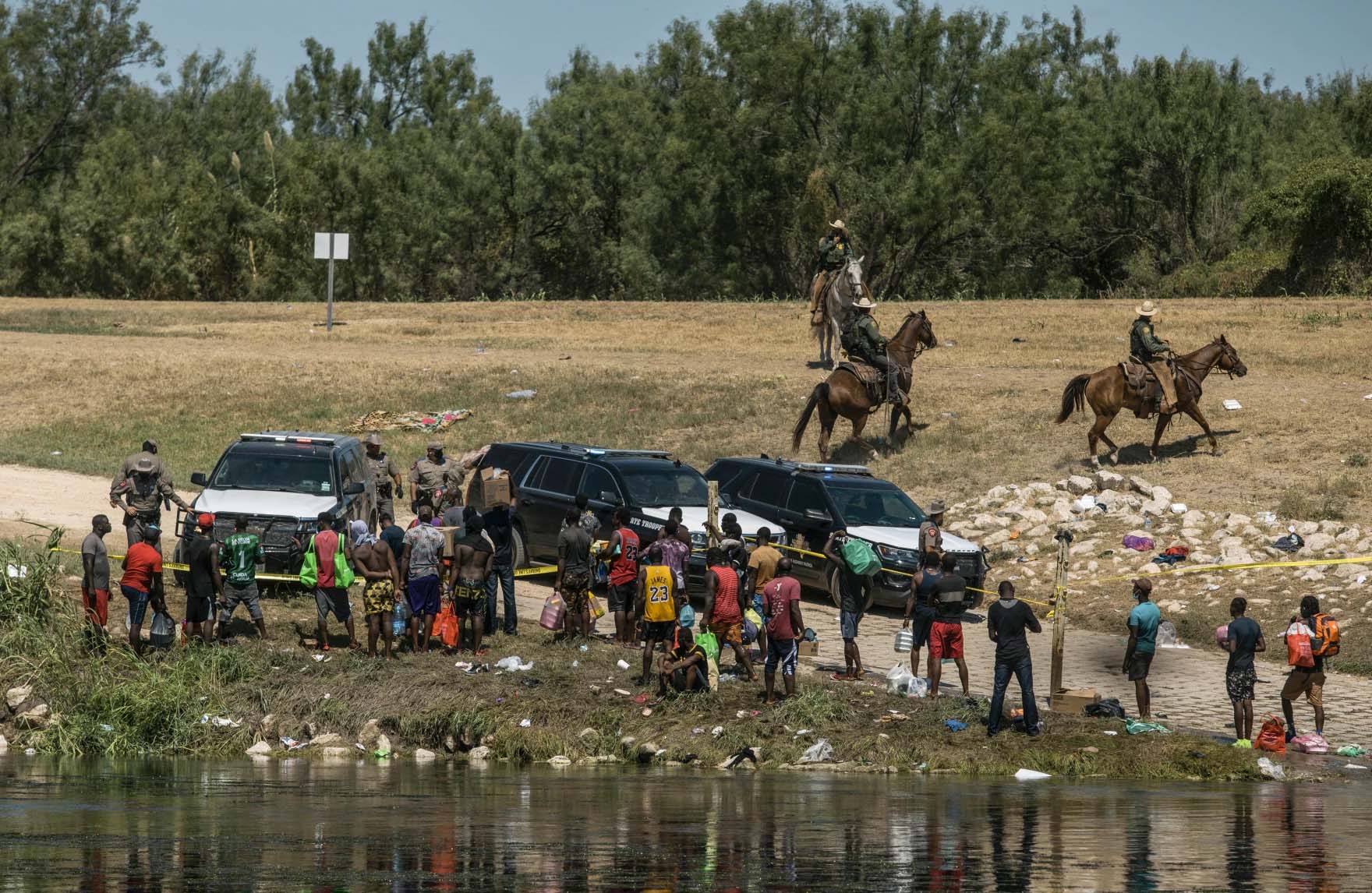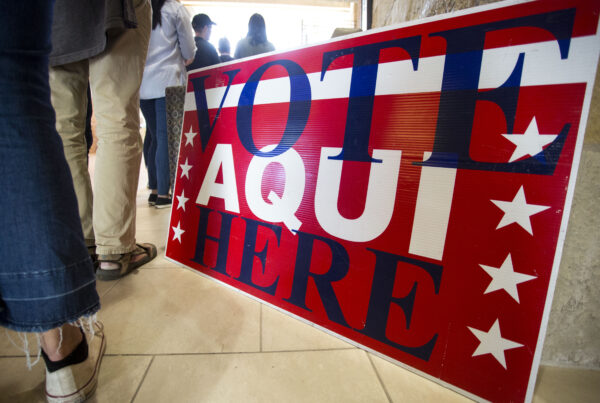From The Texas Newsroom:
The Texas House passed sweeping immigration-enforcement legislation early Thursday morning following hours of tense and emotional debate that saw Republicans limit the number of amendments Democrats could file on the proposal.
House Bill 4 passed 83 to 63 after tensions flared, leading to a temporary halt of action on the chamber floor. The vote took place around 4 a.m. Thursday.
The bill, by state Rep. David Spiller, R-Jacksboro, makes unauthorized entry across the border into Texas a class B misdemeanor. That offense could increase to a state jail felony for any individual previously removed under the law. Instead of arresting a migrant, an officer could choose to order them to return to Mexico. If the person fails to comply, they could be charged with a second-degree felony, which carries prison time of two to 20 years.
A migrant could be arrested at “any time” and anywhere in the state after they enter illegally, according to the text of the bill.
After Democrats tried — and failed — several times to derail the bill with a technical procedure called a point of order, state Rep. Cody Harris, R-Palestine, made a motion to limit the number of amendments lawmakers could debate. The motion passed despite Democrats’ protests about the ambiguity of such a rare move.
After that vote, state Rep. Armando Walle, D-Houston, approached Harris to admonish him for trying to silence the bill’s opponents. Democrats, immigrant rights and advocacy groups said the bill will lead to racial profiling and harassment of minorities, including U.S. citizens.
“Y’all don’t understand the s**t that y’all do. It hurts our community, it hurts us personally,” Walle told Harris as both were surrounded by other lawmakers, according to videos posted by members of the Capitol press corps.
Following an hours-long pause, lawmakers returned to the House floor and continued debate on the bill. Spiller added language to the legislation that would exclude enforcement of the bill in hospitals, schools or places of worship.
Democrats attempted to add several additional amendments to the bill, including: a proposal that would limit enforcement of the bill to Texas Department of Public Safety officers; a measure that would prohibit enforcement in a family violence shelter; and a separate proposal that would require that a peace officer witness an unauthorized crossing before making an arrest.
The amendments failed after Spiller spoke against them. However, one addition that did pass prohibits law enforcement from arresting or detaining a person in a facility that provides safety and services for victims of sexual assault if the person was there for an examination and treatment.
What’s next for HB 4
The bill now moves to the Republican-dominated Texas Senate.
If passed into law, House Bill 4 will likely end up in federal court in another fight over the limitations placed on state governments on issues of immigration enforcement, which is mainly under the purview of the federal government.
State Rep. Joe Moody, D-El Paso, said the bill could also potentially strip someone of their due process rights as police officers can act as “judge, jury and executioner” if they decide to order the person back across the border.
“We’re giving that power to the officer to make that decision in lieu of arrest,” he said. “By the way, I think we’re encouraging them to do it instead of taking someone to their local jail.”
The legislation was part of a package the House debated Wednesday that also included Senate Bill 4, by state Sen. Pete Flores, R-Pleasanton. The bill increases penalties for human smugglers and operators of stash houses and applies statewide. It makes human smuggling a third-degree felony that carries with it a 10-year minimum prison sentence.
Lawmakers were ordered by Gov. Greg Abbott to debate and pass immigration legislation during the current special session of the Texas Legislature, this year’s third since May.
The chamber also passed House Bill 6 on Wednesday. That measure appropriates $1.5 billion to the governor’s office to build physical barriers on the border. The monies will go toward construction-ready projects in the border counties of Webb, Starr, Val Verde and Maverick, as well as land acquisitions and easements for future projects, bill author state Rep. Jacey Jetton, R-Richmond, told the House Committee on Appropriations earlier this week.
Democrats tried to amend HB 6 to prohibit the money from being used for additional buoys similar to those currently installed in the Rio Grande near Eagle Pass. The amendment failed.













